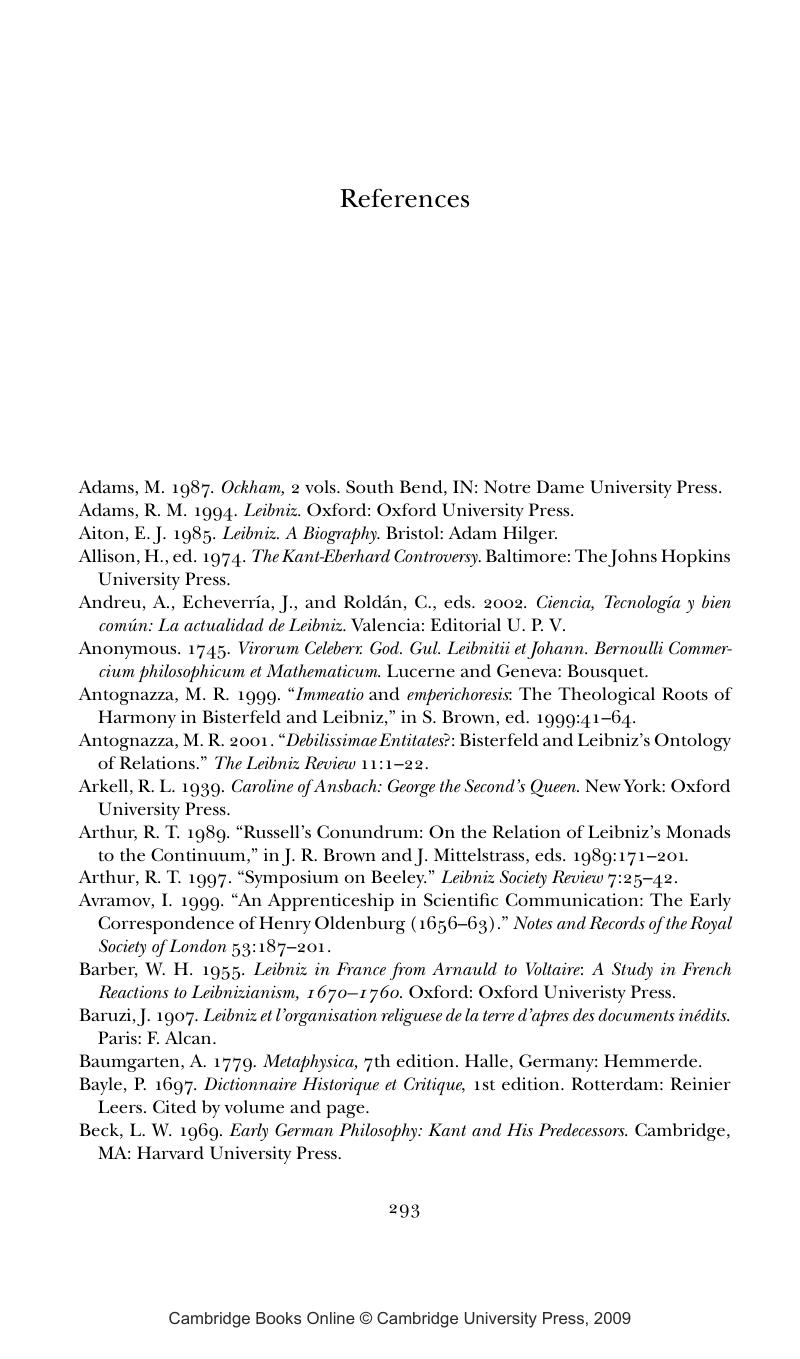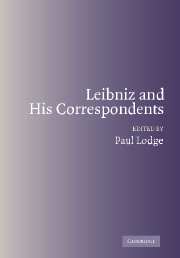Book contents
- Frontmatter
- Contents
- Contributors
- Abbreviations
- Acknowledgments
- 1 Introduction
- 2 Leibniz and His Master: The Correspondence with Jakob Thomasius
- 3 A Philosophical Apprenticeship: Leibniz's Correspondence with the Secretary of the Royal Society, Henry Oldenburg
- 4 The Leibniz–Foucher Alliance and Its Philosophical Bases
- 5 Leibniz to Arnauld: Platonic and Aristotelian Themes on Matter and Corporeal Substance
- 6 Leibniz and Fardella: Body, Substance, and Idealism
- 7 Leibniz's Exchange with the Jesuits in China
- 8 Leibniz's Close Encounter with Cartesianism in the Correspondence with De Volder
- 9 “All the time and everywhere everything's the same as here”: The Principle of Uniformity in the Correspondence Between Leibniz and Lady Masham
- 10 Idealism Declined: Leibniz and Christian Wolff
- 11 On Substance and Relations in Leibniz's Correspondence with Des Bosses
- 12 “[…] et je serai tousjours la même pour vous”: Personal, Political, and Philosophical Dimensions of the Leibniz–Caroline Correspondence
- References
- Index
- References
References
Published online by Cambridge University Press: 02 September 2009
- Frontmatter
- Contents
- Contributors
- Abbreviations
- Acknowledgments
- 1 Introduction
- 2 Leibniz and His Master: The Correspondence with Jakob Thomasius
- 3 A Philosophical Apprenticeship: Leibniz's Correspondence with the Secretary of the Royal Society, Henry Oldenburg
- 4 The Leibniz–Foucher Alliance and Its Philosophical Bases
- 5 Leibniz to Arnauld: Platonic and Aristotelian Themes on Matter and Corporeal Substance
- 6 Leibniz and Fardella: Body, Substance, and Idealism
- 7 Leibniz's Exchange with the Jesuits in China
- 8 Leibniz's Close Encounter with Cartesianism in the Correspondence with De Volder
- 9 “All the time and everywhere everything's the same as here”: The Principle of Uniformity in the Correspondence Between Leibniz and Lady Masham
- 10 Idealism Declined: Leibniz and Christian Wolff
- 11 On Substance and Relations in Leibniz's Correspondence with Des Bosses
- 12 “[…] et je serai tousjours la même pour vous”: Personal, Political, and Philosophical Dimensions of the Leibniz–Caroline Correspondence
- References
- Index
- References
Summary

- Type
- Chapter
- Information
- Leibniz and his Correspondents , pp. 293 - 304Publisher: Cambridge University PressPrint publication year: 2004



